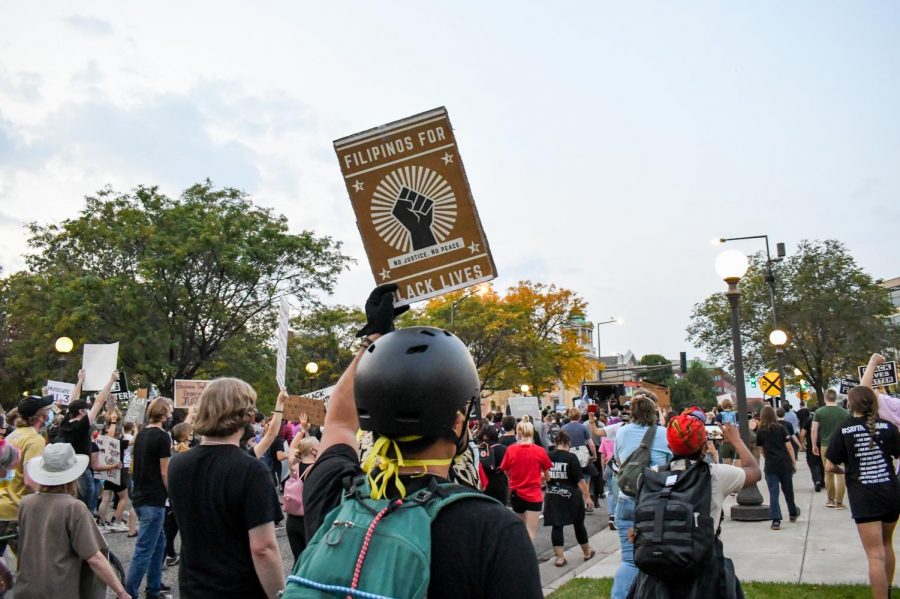This Thursday, workers at the Walker Art Center declared their intent to unionize. Employees from a variety of departments gathered and displayed a banner over the yellow pedestrian bridge connecting the Walker to Loring Park.
The Walker is one of many “cool” institutions in the Twin Cities where workers have declared their intent to unionize in the last few months. The Walker is joining the likes of beer giant Surly Brewing Co., Fair State Cooperative, MPR and Spyhouse Coffee. Amid our current economic chaos, workers are seeking the stability and equality that organized labor provides. Unionized workers make more and have more benefits than non-unionized workers.
In addition, unions promote racial and gender equity. While the American labor movement wasn’t inclusive, unions have been vehicles to the middle class since their integration in the 1960s. A 2016 study found that the median wealth of a nonwhite union worker was nearly five times greater than their non-union counterpart. Similarly, the Economic Policy Institute found that the gender pay gap in unions is only $0.94, compared to $0.74 for non-union women.
However, an intent to unionize does not mean that the union is guaranteed to happen. Managers and owners don’t give up their power easily. They can jam the unionization process up with technicalities or put out spin that says unionized workers will surrender their voice to a “third party.” There is a small industry of law firms that companies hire to bog down and bust unionization drives. Or, companies can just lay off all employees.
Many of my columns this year have been about these various tests this summer has presented us. There’s been lots of rosy rhetoric about issues like racial justice, economic justice and COVID-19. It comes from companies, institutions and ourselves. We had all summer to talk and theorize, but now, in a new season, we must ask: Are the affirmative words and promises we heard from our institutions, politicians, friends and, really, ourselves real?
This is especially an important question because being a “cool” institution in Minneapolis means cashing in on the progressive social justice culture that this city thinks it has. We are an island of blue in a sea of red. It’s completely fake, as the police killing of George Floyd and our staggering racial inequality shows, but this progressive self-conception is something our city and its businesses are proud to wear.
Surly, Walker, Fair State and Spyhouse are cool because they aren’t “the Man.” They are “independent” and different from the stodgy old-guard that preceded them. Their success — and wallet — is inseparable from this branding.
Now, it’s important that the institutions that make Minneapolis move beyond an aesthetic of equality. Any brand or person can adjust their social media or make a donation to a non-profit. To show real commitment to equity is to recognize and support workers and their unions. The old Minneapolis image of progressivism is dead, and there is no better way to start anew than with a foundation of real economic equity.














